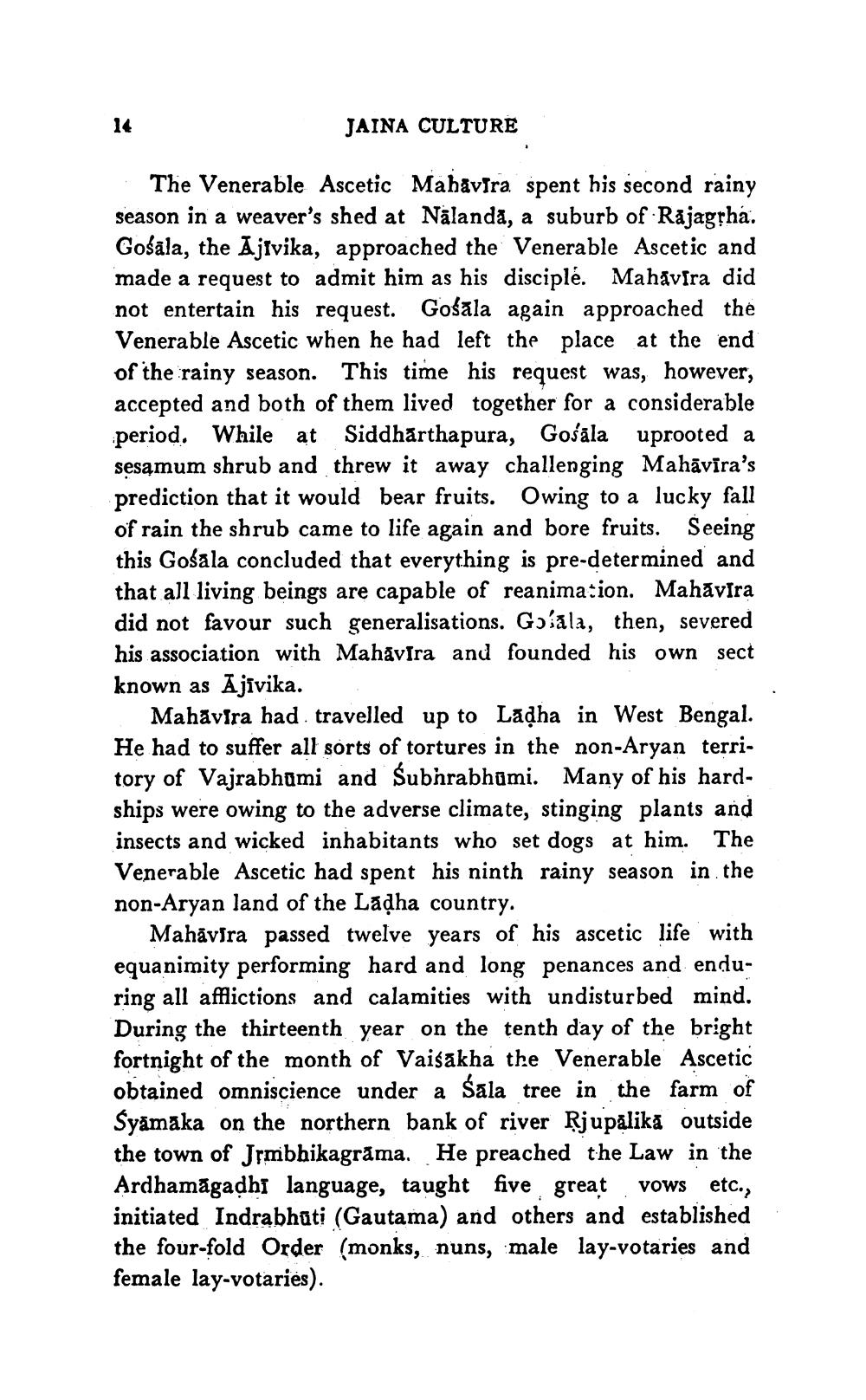________________
JAINA CULTURE
The Venerable Ascetic Mahavira spent his second rainy season in a weaver's shed at Nålanda, a suburb of Rajagțha. Gośāla, the Ajivika, approached the Venerable Ascetic and made a request to admit him as his disciplé. Mahavsra did not entertain his request. Gośāla again approached the Venerable Ascetic when he had left the place at the end of the rainy season. This time his request was, however, accepted and both of them lived together for a considerable period. While at Siddharthapura, Gośāla uprooted a sesąmum shrub and threw it away challenging Mahāvīra's prediction that it would bear fruits. Owing to a lucky fall of rain the shrub came to life again and bore fruits. Seeing this Gošala concluded that everything is pre-determined and that all living beings are capable of reanimation. Mahāvīra did not favour such generalisations. Goala, then, severed his association with Mahavira and founded his own sect known as Ajivika.
Mahavira had travelled up to Ladha in West Bengal. He had to suffer all sorts of tortures in the non-Aryan territory of Vajrabhami and Subhrabhūmi. Many of his hardships were owing to the adverse climate, stinging plants and insects and wicked inhabitants who set dogs at him. The Venerable Ascetic had spent his ninth rainy season in the non-Aryan land of the Ladha country.
Mahāvsra passed twelve years of his ascetic life with equanimity performing hard and long penances and enduring all afflictions and calamities with undisturbed mind. During the thirteenth year on the tenth day of the bright fortnight of the month of Vaisakha the Venerable Ascetic obtained omniscience under a Sala tree in the farm of Syāmaka on the northern bank of river Rjupalika outside the town of Jrmbhikagrāma. He preached the Law in the Ardhamagadhi language, taught five great vows etc., initiated Indrabhati (Gautama) and others and established the four-fold Order (monks, nuns, male lay-votaries and female lay-votaries).




